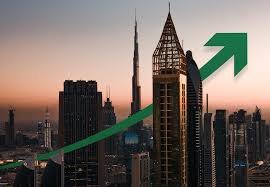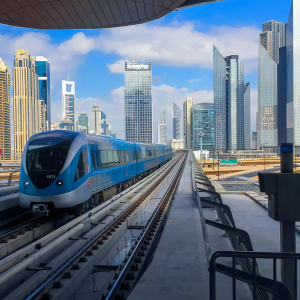Dubai Rental Market : Dubai’s rental market has always been a topic of keen interest for residents, investors, and property analysts. As one of the most dynamic real estate sectors in the world, Dubai’s rental landscape fluctuates based on factors such as economic conditions, government policies, and global market trends. Over the past few years, the city has witnessed rising rental prices, high demand in prime areas, and increased interest in long-term leasing options. This article explores the current state of the Dubai rental market, challenges faced by tenants and landlords, and what the future holds for renters and investors.
Current Trends in Dubai’s Rental Market
The Dubai rental market has seen significant growth in demand, particularly after the pandemic recovery. Several key trends are shaping the industry:
1. Rising Rental Prices
Rental prices in Dubai have surged, especially in popular neighborhoods like Downtown Dubai, Dubai Marina, Jumeirah Village Circle (JVC), and Business Bay. According to recent data, average rental rates have increased by 15-30% in some areas over the last year. Villas and townhouses, in particular, have seen a higher price surge, driven by a growing preference for spacious living.

2. Shift Toward Long-Term Rentals
With Dubai’s population expanding and more expatriates opting for long-term residency, there has been a notable shift toward 12-month or longer leases. This trend is further encouraged by the Golden Visa program, which allows investors and professionals to stay in Dubai for extended periods.
3. Demand for Smart and Sustainable Homes
Tenants are increasingly looking for energy-efficient, smart homes that align with sustainability goals. Developers are incorporating green building features and smart home technology to attract high-end renters who value innovation and eco-friendly living.

4. Growing Interest in Affordable Housing
While luxury properties remain in demand, a large segment of residents is looking for affordable rental options in areas like Al Nahda, International City, and Dubai South. The government and developers are focusing on budget-friendly housing projects to cater to mid-income earners.
Challenges Faced by Renters and Landlords
Despite its lucrative prospects, the Dubai rental market presents some challenges:
1. High Rental Costs in Prime Locations
Tenants in areas such as Palm Jumeirah, DIFC, and Downtown Dubai face skyrocketing rental costs, making it difficult for middle-income professionals to afford premium housing.
2. Increasing Competition Among Landlords
While some landlords benefit from rising demand, others must offer flexible payment plans (such as monthly payments instead of annual lump sums) to attract tenants in competitive areas.
3. Legal Disputes and Eviction Notices
Dubai’s rental laws protect tenants, but disputes over eviction notices, rent hikes, and maintenance responsibilities are common. The Real Estate Regulatory Agency (RERA) provides guidelines for resolving such conflicts, but tenants must stay informed about their rights.
4. Service Charges and Maintenance Issues
Some tenants face unexpected service charges or maintenance delays, particularly in older buildings. Landlords and property managers are expected to adhere to strict maintenance regulations, but issues persist in some cases.
Dubai’s Rental Regulations and Tenant Rights
Dubai has a well-established regulatory framework that governs the rental sector. Some key regulations include:
- Rental Increase Caps: According to RERA’s rental index, landlords cannot increase rents beyond the prescribed limits.
- Eviction Notice Rules: Landlords must provide a 12-month written notice before eviction due to reasons like personal use or property sale.
- Security Deposit Protection: Tenants must ensure that their security deposits are refundable, except for damages beyond normal wear and tear.
Future Outlook for the Dubai Rental Market
The Dubai rental market is expected to remain strong in the coming years, driven by:
- Expo 2020 Legacy and Infrastructure Growth: Areas developed for Expo 2020, such as Dubai South, will see increased rental demand.
- Foreign Investments and Residency Programs: Policies like the Golden Visa and retirement visas will attract more long-term residents.
- Smart City and Green Initiatives: Sustainable and AI-driven smart homes will reshape the rental landscape.
Conclusion
Dubai’s rental market continues to evolve, offering opportunities and challenges for both tenants and landlords. While rental prices are rising, government regulations provide stability and protection for tenants. With Dubai’s expanding economy and high quality of life, the rental market will likely remain a key sector for investors and residents looking for long-term housing solutions.
Do follow Uae stories for more Updates
Abu Dhabi Strengthens Drone Regulations Amid Growing Aerial Technology Use












